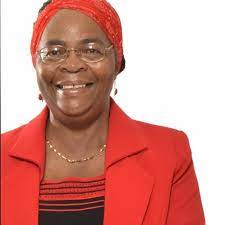
Barbara Makhalisa –The Veteran Proponent of Gender Equality
By Tapfuma Machakaire 11/1/2023
Section 56 of the 2013 Constitution of Zimbabwe provides a strong framework for the protection and promotion of the rights of women and men, girls and boys. It recognises the equality of all persons and explicitly outlaws discrimination on the grounds of sex or gender. The inclusion of this section was a result of a long battle for gender equality which was spearheaded by activists from different fronts.
Among the early subtle proponents of gender equality in Zimbabwe is Barbara Makhalisa who for decades has been contributing poignant literature on gender inequality.
Born in 1949 Barbara Clara Makhalisa Moyo, a teacher by profession, is also a writer, Ndebele translator, novelist, editor and publisher. She authored several Ndebele and English books some of which have been used in schools as textbooks.
Makhalisa produced a collection of short stories that deal with the struggles that women go through in Zimbabwe. She digs deep into the minds and hearts of ordinary Zimbabwean woman who struggle to deal with family problems, domestic violence and discrimination.
Published in 1977, Umhlaba Lo! -This Country-is a play based on events of the 1970s which focuses on the very limited education opportunities for young girls despite that some of them could have been very bright. The story zeros in on a girl living in the city who struggles to get an opportunity to pursue her education. Her situation is further compounded by the bottle neck system of education during the colonial regime.
In another story Makhalisa tabulates the challenges that women encounter in a marriage. The title of the story –Umendo– is a summary of a Ndebele proverb Umendo awuthunyelwa gundwane, meaning a woman cannot send a mouse to investigate her situation in a marriage. Makhalisa concludes that due to the myriad of problems that women face in marriages in Zimbabwe, marriage is a gamble. In 1983, Makhalisa published Impilo Yinkinga-Life is a Struggle-where she argues that despite the numerous challenges that a woman can face in life her strong personality cannot be destroyed, but is rather strengthened through perseverance. She goes on to explain the consequences of carefree indulgence which some women resort to in trying to overcome their problems. In -The Sitting Bee- the writer explores the theme of patriarchy by looking at the challenges that house maids go through in Zimbabwe including looking after dogs which are sometimes treated better than the maids.
In her collection The Underdog and Other Stories, Makhalisa adopts a more radical stand on fertility and the stigmatisation of women who are unable to bear children.
From 1981 to 1991 Makhalisa worked as an editor for the publishing house, Longman Zimbabwe. She was later appointed head of the International Bible Society (IBS) for Malawi and Zimbabwe. While working for IBS, she coordinated the translation and publishing of the new IBS Shona and Ndebele Bibles, as well as Chichewa New Testament. She left IBS in 2005 and now runs a company called Radiant Publishing Company, whose vision is to publish for transformation.
In 2015, she received an honorary PHD from the National University of Science and Technology (NUST) in Bulawayo. She has 40 National Arts Merit Awards and is a (NAMA) Legends Award winner.
Makhalisa is an active member of the Brethren in Christ Church in Zimbabwe. As an elder in her church, she has sat in a number of humanitarian boards. Through her influence in the church, she has mentored many young people to write stories. This has seen some youths in the church publishing stories under the project -Good Words -Amazwi Amahle in Zimbabwe. She is the Regional Representative of the Mennonite World Conference (MWC) Southern Africa covering South Africa, Mozambique, Malawi, Zambia, and Zimbabwe. MWC is a global community of faith in the Anabaptist tradition. Makhalisa is married to Shadreck Nkala and they have three children and six grand-children.
Makhalisa who is one of the first female authors in Zimbabwe is famed for her statement “Nothing is too commonplace or unworthy as we meet the wife deserted by her husband, the privileged girl who sees the real world for the first time, the grandmother bereft of all her possessions, the business woman whose promotion is in the hands of men, and many others, the situations are real, often painful, and we share the struggles of those women fighting often lone battles to cope with the complexities of real life in Zimbabwe.”